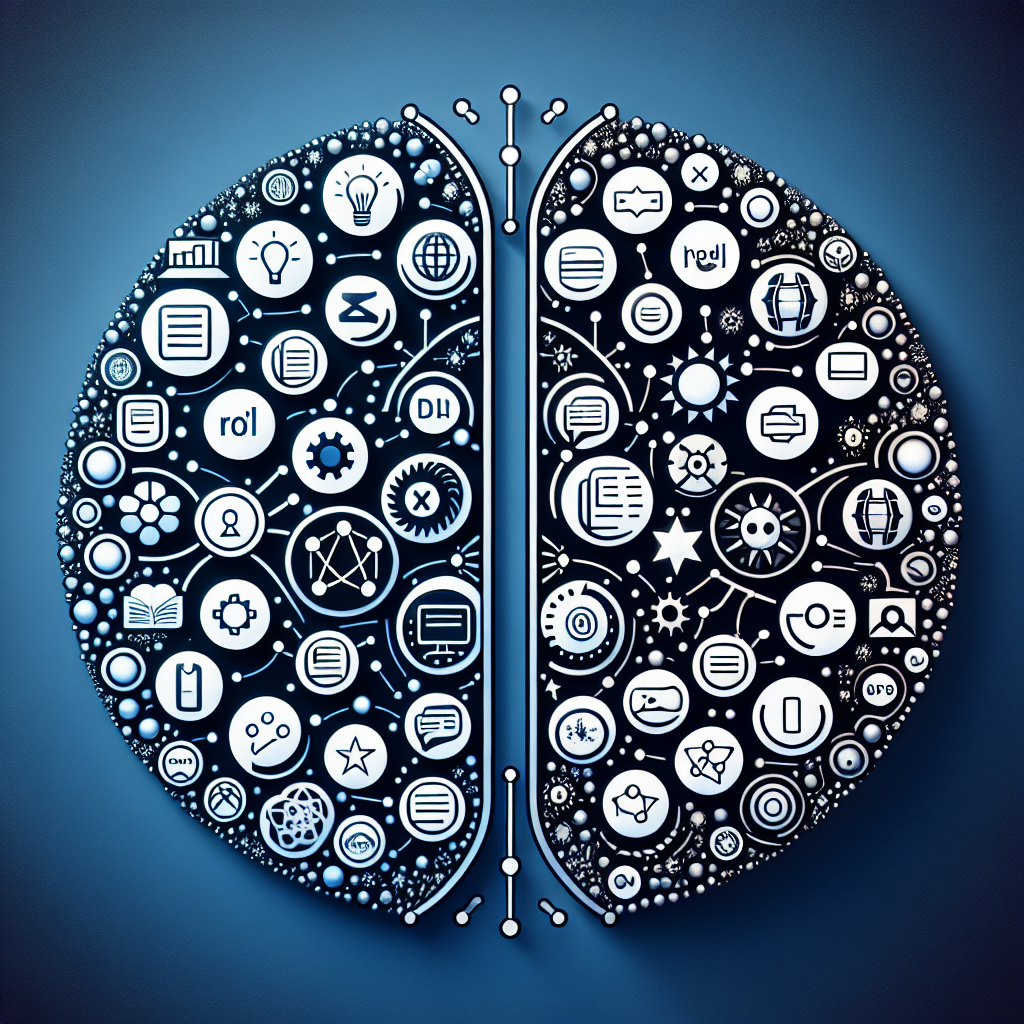Natural Language Processing (NLP) and recommender systems are two powerful technologies that are revolutionizing the way we interact with information and make decisions. NLP is a branch of artificial intelligence that focuses on the interaction between computers and humans using natural language, while recommender systems are algorithms that analyze user preferences and behavior to provide personalized recommendations. In this article, we will explore the connection between NLP and recommender systems, and how they work together to enhance user experiences.
1. Overview of Natural Language Processing (NLP)
NLP is a field of artificial intelligence that focuses on the interaction between computers and humans using natural language. It involves the development of algorithms and techniques that enable computers to understand, interpret, and generate human language. NLP is used in a variety of applications, such as chatbots, sentiment analysis, and language translation.
One of the key challenges in NLP is understanding the nuances of human language, such as slang, sarcasm, and ambiguity. NLP algorithms use various techniques, such as machine learning and deep learning, to analyze and process text data. These algorithms can perform tasks such as text classification, named entity recognition, and sentiment analysis.
2. Overview of Recommender Systems
Recommender systems are algorithms that analyze user preferences and behavior to provide personalized recommendations. These systems are used in a variety of applications, such as e-commerce websites, streaming services, and social media platforms. Recommender systems can help users discover new products, movies, or content that they may be interested in.
There are two main types of recommender systems: collaborative filtering and content-based filtering. Collaborative filtering algorithms analyze user behavior, such as ratings and interactions, to recommend items to users with similar preferences. Content-based filtering algorithms analyze the content of items, such as text descriptions or features, to recommend items that are similar to those that a user has liked in the past.
3. The Connection between NLP and Recommender Systems
NLP and recommender systems are closely connected, as they both involve analyzing and processing text data to provide personalized recommendations. NLP techniques can be used to enhance the performance of recommender systems by extracting valuable information from text data, such as user reviews, product descriptions, and social media posts.
One way that NLP can enhance recommender systems is by analyzing user reviews and feedback to understand user preferences and sentiments. NLP algorithms can extract key topics, sentiments, and opinions from text data to provide more accurate recommendations. For example, NLP can analyze user reviews of movies to understand the themes, genres, and actors that users prefer, and use this information to recommend similar movies.
Another way that NLP can enhance recommender systems is by analyzing product descriptions and features to improve the quality of recommendations. NLP algorithms can extract key features, attributes, and keywords from text data to better understand the content of items. For example, NLP can analyze the descriptions of books to identify the genre, author, and plot, and use this information to recommend books that are similar in content.
Overall, the connection between NLP and recommender systems is essential for providing personalized and accurate recommendations to users. By leveraging NLP techniques to analyze text data, recommender systems can better understand user preferences and behavior, and provide recommendations that are tailored to each individual user.
4. FAQs
Q: How does NLP improve the performance of recommender systems?
A: NLP techniques can enhance the performance of recommender systems by analyzing text data, such as user reviews and product descriptions, to extract valuable information about user preferences and content.
Q: What are some common applications of NLP in recommender systems?
A: Some common applications of NLP in recommender systems include sentiment analysis of user reviews, extraction of key features from product descriptions, and analysis of social media posts to understand user preferences.
Q: How can NLP help improve the accuracy of recommendations?
A: NLP can help improve the accuracy of recommendations by analyzing text data to extract key topics, sentiments, and opinions, which can be used to better understand user preferences and behavior.
Q: What are some challenges of using NLP in recommender systems?
A: Some challenges of using NLP in recommender systems include handling large volumes of text data, understanding the nuances of human language, and ensuring the privacy and security of user information.
Q: How can businesses benefit from using NLP in their recommender systems?
A: Businesses can benefit from using NLP in their recommender systems by providing more personalized and accurate recommendations to users, which can lead to increased user engagement, loyalty, and sales.
In conclusion, the connection between NLP and recommender systems is essential for providing personalized and accurate recommendations to users. By leveraging NLP techniques to analyze text data, recommender systems can better understand user preferences and behavior, and provide recommendations that are tailored to each individual user. Businesses can benefit from using NLP in their recommender systems to enhance user experiences and drive growth.

